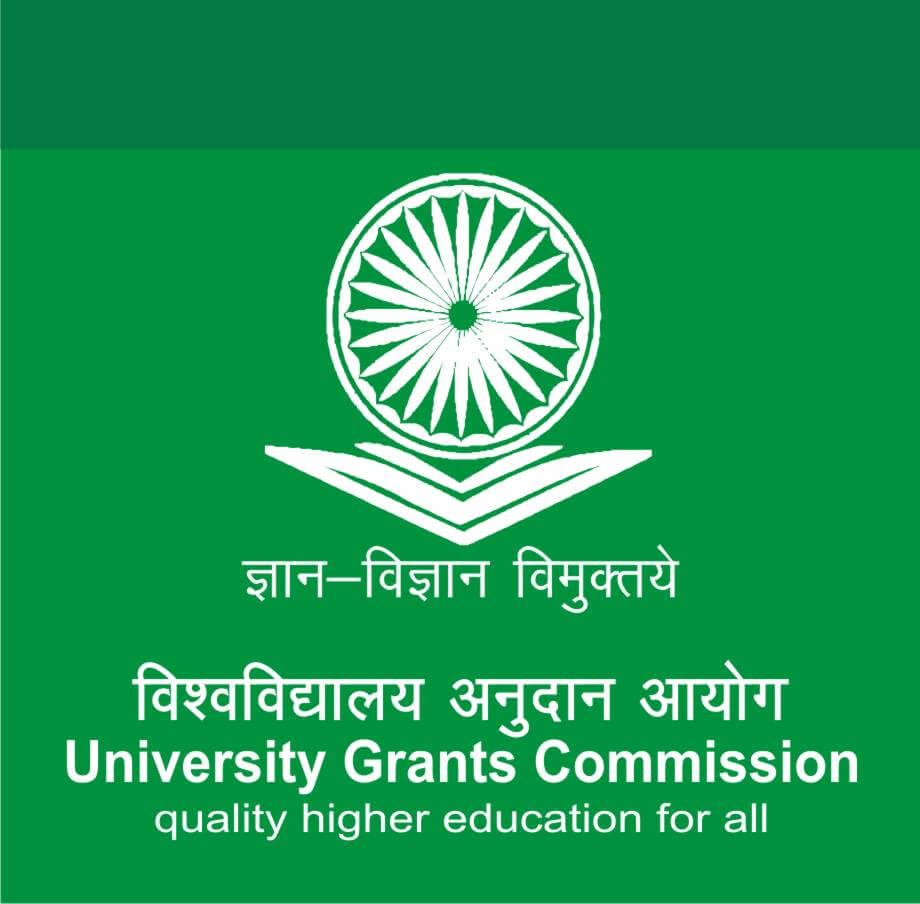INTERNATIONAL JOURNAL OF CREATIVE RESEARCH THOUGHTS - IJCRT (IJCRT.ORG)
International Peer Reviewed & Refereed Journals, Open Access Journal
IJCRT Peer-Reviewed (Refereed) Journal as Per New UGC Rules.
ISSN Approved Journal No: 2320-2882 | Impact factor: 7.97 | ESTD Year: 2013
Call For Paper - Volume 14 | Issue 2 | Month- February 2026
Scholarly open access journals, Peer-reviewed, and Refereed Journals, Impact factor 7.97 (Calculate by google scholar and Semantic Scholar | AI-Powered Research Tool) , Multidisciplinary, Monthly, Indexing in all major database & Metadata, Citation Generator, Digital Object Identifier(CrossRef DOI)
Contact Us Click Here
WhatsApp Contact Click Here
Volume 5 | Issue 4 |
| IJCRT Journal front page | IJCRT Journal Back Page |
Paper Title: A Survey of Buddhism in Dakshin Kosala Region
Author Name(s): Dr Rahul Raj
Published Paper ID: - IJCRT1136205
Register Paper ID - 300096
Publisher Journal Name: IJPUBLICATION, IJCRT
DOI Member ID: 10.6084/m9.doi.one.IJCRT1136205 and DOI :
Author Country : Indian Author, India, 221005 , Banaras, 221005 , | Research Area: Arts All Published Paper URL: http://ijcrt.org/viewfull.php?&p_id=IJCRT1136205 Published Paper PDF: download.php?file=IJCRT1136205 Published Paper PDF: http://www.ijcrt.org/papers/IJCRT1136205.pdf
Your Paper Publication Details:
Title: A SURVEY OF BUDDHISM IN DAKSHIN KOSALA REGION
DOI (Digital Object Identifier) :
Pubished in Volume: 5 | Issue: 4 | Year: December 2017
Publisher Name : IJCRT | www.ijcrt.org | ISSN : 2320-2882
Subject Area: Arts All
Author type: Indian Author
Pubished in Volume: 5
Issue: 4
Pages: 465-468
Year: December 2017
Downloads: 25
E-ISSN Number: 2320-2882
Abstract
Licence: creative commons attribution 4.0
License
Keywords
Dakshin Kosala, Xuangzang, Sirpur, Buddhist art, Kalchuri dynasty
License
Paper Title: The Rise of Dvaravati in Ancient Thailand: Some Observations
Author Name(s): Dr Rahul Raj
Published Paper ID: - IJCRT1136204
Register Paper ID - 300080
Publisher Journal Name: IJPUBLICATION, IJCRT
DOI Member ID: 10.6084/m9.doi.one.IJCRT1136204 and DOI :
Author Country : Indian Author, India, 221005 , Banaras, 221005 , | Research Area: Arts All Published Paper URL: http://ijcrt.org/viewfull.php?&p_id=IJCRT1136204 Published Paper PDF: download.php?file=IJCRT1136204 Published Paper PDF: http://www.ijcrt.org/papers/IJCRT1136204.pdf
Your Paper Publication Details:
Title: THE RISE OF DVARAVATI IN ANCIENT THAILAND: SOME OBSERVATIONS
DOI (Digital Object Identifier) :
Pubished in Volume: 5 | Issue: 4 | Year: November 2017
Publisher Name : IJCRT | www.ijcrt.org | ISSN : 2320-2882
Subject Area: Arts All
Author type: Indian Author
Pubished in Volume: 5
Issue: 4
Pages: 462-464
Year: November 2017
Downloads: 29
E-ISSN Number: 2320-2882
Abstract
In the early centuries of the Common Era, some part of present Thailand was subject to the kingdom of Funan, which held the power in Mainland South East Asia. After the fall of the Funan, Dv?r?vati emerged as a powerful state in the Mainland South East Asia. Xuangzang refers it as 'To-lo-po-ti'. Dv?r?vati flourished until the tenth century C.E. The cultural relations between India and Dv?r?vati in Thailand, in particular, has been evidenced by the representation of the material cultures with Indian style and content, which was embedded in inscriptions, sculptures, architecture, etc. In the case of cross-cultural/tran-scultural scenario like Dv?r?vati and India.
Licence: creative commons attribution 4.0
License
Keywords
Dv?r?vati, Thailand, Buddhism, Xuangxang, South East Asia
License
Paper Title: Sustainable Development and Environmental Challenges by using Environmental Chemistry
Author Name(s): Dr. Yogibabu Nomula
Published Paper ID: - IJCRT1136186
Register Paper ID - 299327
Publisher Journal Name: IJPUBLICATION, IJCRT
DOI Member ID: 10.6084/m9.doi.one.IJCRT1136186 and DOI :
Author Country : Indian Author, India, - , -, - , | Research Area: Science and Technology Published Paper URL: http://ijcrt.org/viewfull.php?&p_id=IJCRT1136186 Published Paper PDF: download.php?file=IJCRT1136186 Published Paper PDF: http://www.ijcrt.org/papers/IJCRT1136186.pdf
Your Paper Publication Details:
Title: SUSTAINABLE DEVELOPMENT AND ENVIRONMENTAL CHALLENGES BY USING ENVIRONMENTAL CHEMISTRY
DOI (Digital Object Identifier) :
Pubished in Volume: 5 | Issue: 4 | Year: November 2017
Publisher Name : IJCRT | www.ijcrt.org | ISSN : 2320-2882
Subject Area: Science and Technology
Author type: Indian Author
Pubished in Volume: 5
Issue: 4
Pages: 326-330
Year: November 2017
Downloads: 33
E-ISSN Number: 2320-2882
Abstract
Sustainable development has emerged as a cornerstone of global policy and scientific research, emphasizing the need to balance economic growth with environmental protection. Environmental chemistry plays a vital role in understanding the complex interactions between human activities, pollutants, and natural ecosystems. This paper examines the major environmental challenges- climate change, pollution, depletion of natural resources, and waste management- and highlights strategies grounded in environmental chemistry for achieving sustainability. By exploring green chemistry, renewable energy technologies, waste valorization, and circular economy models, the paper argues that sustainable development can be achieved through innovation, interdisciplinary collaboration, and effective policy frameworks. The goal is to provide a holistic perspective on balancing development with ecological responsibility.
Licence: creative commons attribution 4.0
License
Keywords
Sustainable, Global policy, Scientific research, Environmental, Pollutants, Ecosystems, Green Chemistry, Economy.
License
Paper Title: Kannada Visha Vaidhyashastrakke Koduge
Author Name(s): Dr.Mahadevi R Hiremath
Published Paper ID: - IJCRT1136178
Register Paper ID - 299249
Publisher Journal Name: IJPUBLICATION, IJCRT
DOI Member ID: 10.6084/m9.doi.one.IJCRT1136178 and DOI :
Author Country : Indian Author, India, - , -, - , | Research Area: Science and Technology Published Paper URL: http://ijcrt.org/viewfull.php?&p_id=IJCRT1136178 Published Paper PDF: download.php?file=IJCRT1136178 Published Paper PDF: http://www.ijcrt.org/papers/IJCRT1136178.pdf
Your Paper Publication Details:
Title: KANNADA VISHA VAIDHYASHASTRAKKE KODUGE
DOI (Digital Object Identifier) :
Pubished in Volume: 5 | Issue: 4 | Year: December 2017
Publisher Name : IJCRT | www.ijcrt.org | ISSN : 2320-2882
Subject Area: Science and Technology
Author type: Indian Author
Pubished in Volume: 5
Issue: 4
Pages: 255-264
Year: December 2017
Downloads: 50
E-ISSN Number: 2320-2882
Abstract
Kannada Visha Vaidhyashastrakke Koduge
Licence: creative commons attribution 4.0
License
Keywords
Kannada Visha Vaidhyashastrakke Koduge
License
Paper Title: Variation in Finger Girth of Banana (Musa acuminata L.) with doses of Potassium fertilizers under Different Plant Geometries
Author Name(s): Gore A. K.
Published Paper ID: - IJCRT1136159
Register Paper ID - 298404
Publisher Journal Name: IJPUBLICATION, IJCRT
DOI Member ID: 10.6084/m9.doi.one.IJCRT1136159 and DOI :
Author Country : Indian Author, India, - , -, - , | Research Area: Science and Technology Published Paper URL: http://ijcrt.org/viewfull.php?&p_id=IJCRT1136159 Published Paper PDF: download.php?file=IJCRT1136159 Published Paper PDF: http://www.ijcrt.org/papers/IJCRT1136159.pdf
Your Paper Publication Details:
Title: VARIATION IN FINGER GIRTH OF BANANA (MUSA ACUMINATA L.) WITH DOSES OF POTASSIUM FERTILIZERS UNDER DIFFERENT PLANT GEOMETRIES
DOI (Digital Object Identifier) :
Pubished in Volume: 5 | Issue: 4 | Year: December 2017
Publisher Name : IJCRT | www.ijcrt.org | ISSN : 2320-2882
Subject Area: Science and Technology
Author type: Indian Author
Pubished in Volume: 5
Issue: 4
Pages: 114-120
Year: December 2017
Downloads: 40
E-ISSN Number: 2320-2882
Abstract
The present investigation was carried out at Banana Research Station, Nanded. "Studies on plant geometry and levels of potassium on growth, yield and quality of banana (Musa acuminata L.)", for two trial years. In the present experiment, there were four main treatments of plant density, viz. D1 (1.5 m x 1.2 m), D2 (1.5 m x 1.5 m), D3 (1.5 m x 1.8 m) and D4 (1.5 m x 2.1 m), three sub- treatment of potassium levels, viz. K1 (100 g K2 O/plant), K2 (200 g K2O/plant), K3 (300 g K2O/plant) and thus comprising twelve treatment combinations. The greatest girth of fruit (11.91cm) was recorded in density D4 ()1.5 m x 2.1 m) at the least girth of fruit (11.26cm) was given by D1 1.5 m x 1.2 m (5,555 plants/ha), which was at par (11.28cm) D2 1.5 m x 1.5 m (4,444 plants/ha) The potassium level K3 (300 g K2O/plant) had given greatest girth of fruit (11.63cm), which was at par (1159cm) with K2 (200 g K2O/plant), while the least girth of fruit was noted in k, least girth of fruit was noted in k, (100 g K2O/plant) (11.23cm) The interaction effect of plant densities and potassium levels in pooled shows that the greatest girth of fruit (12.14 cm) was noted in D4K3 (1.5 m x 2.1 m at 300 g K2O/plant), (1.5 m x 2.1 m at 200 g K2O/plant).
Licence: creative commons attribution 4.0
License
Keywords
Variation in Finger Girth of Banana (Musa acuminata L.) with doses of Potassium fertilizers under Different Plant Geometries
License
Paper Title: Davanagere jilleya jatregalu mattu adhunikarana ondu adhyayana
Author Name(s): Mr. Hiremath, Dr. K. Sharada
Published Paper ID: - IJCRT1136128
Register Paper ID - 293443
Publisher Journal Name: IJPUBLICATION, IJCRT
DOI Member ID: 10.6084/m9.doi.one.IJCRT1136128 and DOI :
Author Country : Indian Author, India, 580001 , Dharawad, 580001 , | Research Area: Languages Published Paper URL: http://ijcrt.org/viewfull.php?&p_id=IJCRT1136128 Published Paper PDF: download.php?file=IJCRT1136128 Published Paper PDF: http://www.ijcrt.org/papers/IJCRT1136128.pdf
Your Paper Publication Details:
Title: DAVANAGERE JILLEYA JATREGALU MATTU ADHUNIKARANA ONDU ADHYAYANA
DOI (Digital Object Identifier) :
Pubished in Volume: 5 | Issue: 4 | Year: October 2017
Publisher Name : IJCRT | www.ijcrt.org | ISSN : 2320-2882
Subject Area: Languages
Author type: Indian Author
Pubished in Volume: 5
Issue: 4
Pages: 884-890
Year: October 2017
Downloads: 64
E-ISSN Number: 2320-2882
Abstract
-
Licence: creative commons attribution 4.0
License
Paper Title: Prostitution in India: Historical Roots, Political Regulation, and Human Rights Concerns
Author Name(s): Waseem Ahmed, Dr. Rachana Kaushal
Published Paper ID: - IJCRT1136127
Register Paper ID - 293418
Publisher Journal Name: IJPUBLICATION, IJCRT
DOI Member ID: 10.6084/m9.doi.one.IJCRT1136127 and DOI :
Author Country : Indian Author, India, - , -, - , | Research Area: Science and Technology Published Paper URL: http://ijcrt.org/viewfull.php?&p_id=IJCRT1136127 Published Paper PDF: download.php?file=IJCRT1136127 Published Paper PDF: http://www.ijcrt.org/papers/IJCRT1136127.pdf
Your Paper Publication Details:
Title: PROSTITUTION IN INDIA: HISTORICAL ROOTS, POLITICAL REGULATION, AND HUMAN RIGHTS CONCERNS
DOI (Digital Object Identifier) :
Pubished in Volume: 5 | Issue: 4 | Year: October 2017
Publisher Name : IJCRT | www.ijcrt.org | ISSN : 2320-2882
Subject Area: Science and Technology
Author type: Indian Author
Pubished in Volume: 5
Issue: 4
Pages: 874-883
Year: October 2017
Downloads: 68
E-ISSN Number: 2320-2882
Abstract
Prostitution in India has been a complex and contested subject, shaped by historical practices, political regulation, and evolving human rights discourses. From the courtesans of ancient India and the devadasi system to the colonial regulation of brothels and the post-independence legal framework, prostitution has been entangled in debates over morality, law, and power. The state's regulatory approach, often driven by concerns of public order and morality, has frequently marginalized sex workers rather than safeguarding their rights. This paper examines the historical trajectory of prostitution in India, critically analyzes the politics of regulation, and evaluates the issue through a human rights lens, focusing on dignity, autonomy, and livelihood. Drawing on international human rights instruments and comparative models of governance, it explores the gaps in India's legal and policy framework. The study argues for a shift from a morality-driven, punitive approach to a rights-based framework that recognizes sex workers as agents entitled to protection, dignity, and equality.
Licence: creative commons attribution 4.0
License
Keywords
Prostitution; Human Rights; Political Regulation; India; Sex Work
License
Paper Title: Judicial Interpretation of Religious Freedom in India
Author Name(s): Anas Jameel, Dr. Rachana Kaushal
Published Paper ID: - IJCRT1136126
Register Paper ID - 293419
Publisher Journal Name: IJPUBLICATION, IJCRT
DOI Member ID: 10.6084/m9.doi.one.IJCRT1136126 and DOI :
Author Country : Indian Author, India, - , -, - , | Research Area: Science and Technology Published Paper URL: http://ijcrt.org/viewfull.php?&p_id=IJCRT1136126 Published Paper PDF: download.php?file=IJCRT1136126 Published Paper PDF: http://www.ijcrt.org/papers/IJCRT1136126.pdf
Your Paper Publication Details:
Title: JUDICIAL INTERPRETATION OF RELIGIOUS FREEDOM IN INDIA
DOI (Digital Object Identifier) :
Pubished in Volume: 5 | Issue: 4 | Year: November 2017
Publisher Name : IJCRT | www.ijcrt.org | ISSN : 2320-2882
Subject Area: Science and Technology
Author type: Indian Author
Pubished in Volume: 5
Issue: 4
Pages: 868-873
Year: November 2017
Downloads: 72
E-ISSN Number: 2320-2882
Abstract
This paper examines the judicial interpretation of religious freedom in India with a focus on constitutional provisions under Articles 25 to 28 and landmark judgments. The study traces the historical and constitutional foundations of religious liberty, emphasizing the framers' vision of a secular state that simultaneously respects faith and enables reform. It highlights how the judiciary has engaged with religious freedom through doctrines such as the essential religious practices test and the recognition of secularism as part of the Constitution's basic structure. Key decisions of judiciary illustrate the courts' efforts to balance conscience, minority rights, and state authority. From a human rights perspective, judicial interventions have at times strengthened dignity and pluralism, particularly in protecting minority beliefs, but they have also constrained religious autonomy by allowing judges to define theological essentials. The analysis underscores inconsistencies in judicial reasoning and reveals the impact of political contexts on religious freedom jurisprudence. The paper concludes that while the judiciary has played a pivotal role in safeguarding secularism and equality, reliance on the essential practices doctrine undermines autonomy and predictability. A shift toward a rights-based framework rooted in constitutional morality and international human rights standards is suggested as the way forward for a more consistent protection of religious freedom in India.
Licence: creative commons attribution 4.0
License
Keywords
Religious Freedom, Indian Judiciary, Essential Practices Doctrine, Secularism, Human Rights
License
Paper Title: Religious Minorities and Electoral Politics: Understanding Muslim Voting Behavior in India
Author Name(s): Dr. Md. Hasin Akhtar
Published Paper ID: - IJCRT1136061
Register Paper ID - 289718
Publisher Journal Name: IJPUBLICATION, IJCRT
DOI Member ID: 10.6084/m9.doi.one.IJCRT1136061 and DOI :
Author Country : Indian Author, India, - , -, - , | Research Area: Science and Technology Published Paper URL: http://ijcrt.org/viewfull.php?&p_id=IJCRT1136061 Published Paper PDF: download.php?file=IJCRT1136061 Published Paper PDF: http://www.ijcrt.org/papers/IJCRT1136061.pdf
Your Paper Publication Details:
Title: RELIGIOUS MINORITIES AND ELECTORAL POLITICS: UNDERSTANDING MUSLIM VOTING BEHAVIOR IN INDIA
DOI (Digital Object Identifier) :
Pubished in Volume: 5 | Issue: 4 | Year: November 2017
Publisher Name : IJCRT | www.ijcrt.org | ISSN : 2320-2882
Subject Area: Science and Technology
Author type: Indian Author
Pubished in Volume: 5
Issue: 4
Pages: 422-434
Year: November 2017
Downloads: 85
E-ISSN Number: 2320-2882
Abstract
The study examines Indian Muslims' election behaviour and focuses on the determination of their choices using historical, political, and socio-economic drivers. It reflects on how political involvement among Indian Muslims evolved along with its implication on identity politics. The study utilizes a mixed-method design to examine patterns of votes between 2004 and 2014 with a focus on a consistent preference for secular and opposition parties, such as the Indian National Congress (INC), and local parties, such as the Samajwadi Party (SP) and Trinamool Congress (TMC). While comprising a significant minority, Muslims are disproportionately represented in parliaments, with their political choices impacted by communal myths, socio-political issues, and policy considerations. The study finds that whereas socioeconomic conditions and geographic distinctions affect voting, religious identity concerns and inclusiveness matter most in informing political decisions. The Bharatiya Janata Party (BJP) continues to draw little support from Muslims because it is identified with majority politics. The findings emphasize the political relevance of Muslim votes and the impact this has on representative democracy. Policy suggestions involve increasing Muslim representation, strengthening anti-discrimination efforts, and promoting civic education to build political participation. Future research must examine the political conduct of young Muslim voters and the political impact of new media on their electoral choices.
Licence: creative commons attribution 4.0
License
Keywords
Electoral Politics, Identity Politics, Muslim Voting, Political Representation, Voting Behavior.
License
Paper Title: The Role of Environmental Awareness in Shaping Sustainable Urban Development: A Cross-Cultural Study
Author Name(s): Jyotsna Bora
Published Paper ID: - IJCRT1136060
Register Paper ID - 290154
Publisher Journal Name: IJPUBLICATION, IJCRT
DOI Member ID: 10.6084/m9.doi.one.IJCRT1136060 and DOI :
Author Country : Indian Author, India, - , -, - , | Research Area: Science and Technology Published Paper URL: http://ijcrt.org/viewfull.php?&p_id=IJCRT1136060 Published Paper PDF: download.php?file=IJCRT1136060 Published Paper PDF: http://www.ijcrt.org/papers/IJCRT1136060.pdf
Your Paper Publication Details:
Title: THE ROLE OF ENVIRONMENTAL AWARENESS IN SHAPING SUSTAINABLE URBAN DEVELOPMENT: A CROSS-CULTURAL STUDY
DOI (Digital Object Identifier) :
Pubished in Volume: 5 | Issue: 4 | Year: December 2017
Publisher Name : IJCRT | www.ijcrt.org | ISSN : 2320-2882
Subject Area: Science and Technology
Author type: Indian Author
Pubished in Volume: 5
Issue: 4
Pages: 409-421
Year: December 2017
Downloads: 104
E-ISSN Number: 2320-2882
Abstract
Environmental awareness is a foundational pillar for achieving sustainable urban development, especially in the face of rapid urbanization and cultural diversity. This study explores how environmental consciousness, shaped by cultural values, education, and public participation, influences urban sustainability across global contexts. It emphasizes that localized knowledge, media influence, and civic engagement are instrumental in fostering eco-friendly practices such as waste management, green infrastructure, and low-carbon transport. Through a comparative lens, the research highlights how Western, Eastern, Indigenous, and African environmental values guide urban planning differently, underscoring the need for culturally sensitive approaches. Public awareness is shown to be a catalyst in shaping green policies, driving behavioural change, promoting green entrepreneurship, and encouraging public-private partnerships. Education and media emerge as vital tools in embedding environmental values from a young age and disseminating information widely. Community involvement further amplifies the impact of sustainability initiatives through inclusive planning and localized actions. Government and NGO-led programs, including Smart Cities Mission and grassroots waste management efforts, are evaluated for their effectiveness in creating environmentally conscious urban spaces. Case studies such as the Auroville Foundation case and Noida Twin Towers demolition illustrate the legal reinforcement of sustainable development principles. However, the study also acknowledges challenges in bridging cultural gaps, such as differing worldviews, communication barriers, and socio-economic disparities. Ultimately, it advocates for an integrative, culturally adaptive framework that prioritizes environmental awareness as the bridge between policy intent and practical urban transformation, ensuring resilient, equitable, and ecologically sound cities for future generations.
Licence: creative commons attribution 4.0
License
Keywords
Environmental awareness, sustainable urban development, cross-cultural perspectives, public participation, eco-friendly policies, education, media, green infrastructure, cultural adaptation, urban planning.
License
February 2026
Volume 14 | Issue 2
Last Date :
28-Feb-2026
Submit Manuscript Online Impact Factor: 7.97 Review Results : Within 02-03 Days Paper Publication : Within 02-03 Days

ISSN: 2320-2882 Impact Factor: 7.97 and ISSN APPROVED Journal Starting Year (ESTD) : 2013

ISSN: 2320-2882 Impact Factor: 7.97 and ISSN APPROVED Journal Starting Year (ESTD) : 2013

CONFERENCE PROPOSAL CONFERENCE PROCEEDINGS







































































